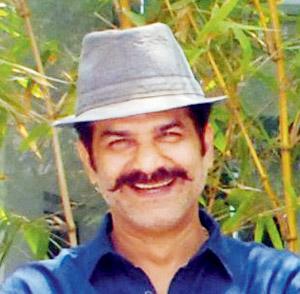TV producers introduce intricate clauses in actors' contracts; to impose fine for turning up late on the sets and romantic involvement with co-stars

Arjun Kapoor and Vatsal Sheth
Last year, the Cine and TV Artistes' Association and the Indian Film and TV Producers Council jointly signed an agreement which said that television actors who turn up late on the sets will be penalised for indiscipline. But now, small screen producers want to go beyond it.
ADVERTISEMENT

Contestants on the upcoming Arjun Kapoor-hosted show 'Fear Factor – Khatron Ke Khiladi' have been asked not to sign any other show till April 2016 and an upcoming tele-series starring Vatsal Sheth (right) will have actors paying hefty fines for reporting late to the sets and having an affair with co-stars
Several actors auditioning for producers Dhaval Gada and Guroudev Bhalla's upcoming TV show starring Vatsal Sheth have been stumped by the clauses in the contract and the hefty penalty for disobeying them. Buzz is that arriving late on the sets will call for a fine of Rs 2 lakh while violating the "no affair with co-star" clause will apparently attract a steeper penalty of Rs 5 lakh.

LOVE BARRED: A still from 'Tere Shehar Main'. Actors have been warned against indiscipline and falling in love with co-stars
The upcoming season of action show 'Fear Factor – Khatron Ke Khiladi' with Bollywood actor Arjun Kapoor as the host kicks off next month and is scheduled to be shot in Argentina. However, the makers have informed all contestants that they have to be exclusively under their contract till the show ends. While shoot of the adrenaline-pumping show will wrap up within a month, they have to abide by the contract till April 2016 when the show is likely to go off air. They cannot sign any other show or host programmes without obtaining a no-objection certificate from the producer and the channel.
Though television producers have lately been drawing up detailed clauses in the contracts, the fine is getting steeper. The tight clauses and the consequences of going astray are now proving to be not only a deterrent, but also frustrating for actors. As a result, most leading actors have appointed managers to handle their contracts and check each word of the clause under a magnifying glass.
Unlike earlier when stars would walk in and out of shows, quitting a show is not so easy now. Now, if the actor is unhappy with the track, he/she can opt out, but only after having served a notice period which could be anything from one to three months.
Producerspeak
J D Majethia, co-chairman of the Indian Film and TV Producers' Council
Late-coming means shooting beyond the stipulated hours which pushes up production costs. If an actor arrives late, he/she affects the entire unit. So, a fine has to be levied to check the errant behaviour. You cannot stop an actor from falling in love with a co-star; it is natural. But if it happens, they become a twosome taking on the producer. If one wants to quit, the other one might threaten to follow suit. They may end up spending more time in the make-up room than on the set, affecting the shooting schedule. So, to stop this, a fine is levied.
Rajan Shahi, producer of 'Yeh Rishta Kya Kehlata Hai' and 'Tere Shehar Main'
At times, a fine is imposed to ensure discipline, especially when the actor is a serial offender. Instead of making actors sign clauses for indiscipline, I would prefer to have verbal communication with actors and explain why discipline is necessary. Television is all about time management. If shoots go haywire due to late arrival of stars on set, it puts pressure on the makers and entails more cost. When a show has been running for years, the cast and crew might feel they can get away with anything. But then again, they need to be told that they cannot go since the business will suffer. I have not penalised any actor working in my shows; I prefer having familial relation with my cast and crew.
Yash Patnaik, producer of 'Sadda Haque', 'Ishq Wala Love' and 'Secret Diaries'
Certain acts of actors affect the functioning and future of the show, so they need to be addressed in the agreement clause and no party should have any problem with it. After all, everyone wants things to function smoothly and it is in the larger interest of everyone.
 Subscribe today by clicking the link and stay updated with the latest news!" Click here!
Subscribe today by clicking the link and stay updated with the latest news!" Click here!






